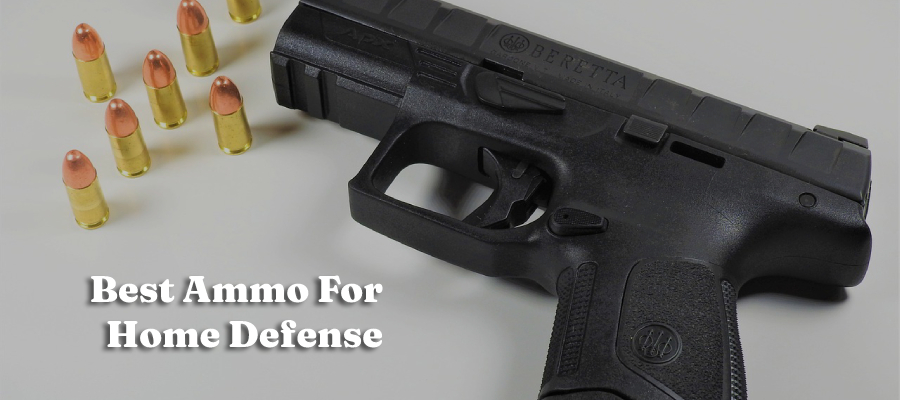Best Ammo For Home Defense
Recently, I found myself in a discussion regarding the best types of ammo for home defense. The discussion largely centered around full metal jacket (FMJ) bullets and hollow points. Indeed, the differences should be considered, so I thought I might share a few things to think about.
When it comes to home defense, choosing whether to use hollow point or FMJ bullets is complex and depends on several factors. Both types of bullets have their own advantages and disadvantages. The best choice for you is relative and will largely depend on your specific needs and circumstances.
Ultimately, the choice boils down to personal preference. However, the first set of considerations should be the type of firearm you are using, your personal shooting ability, and the specific threats you are likely to face. These factors alone should guide the decision.
Hollow point bullets are designed to expand upon impact, creating a larger wound cavity and potentially causing more damage to the target. This can make them more effective at stopping an attacker. However, hollow point bullets can sometimes over-penetrate (depending on the firearm you use), meaning they can pass through the intended target and potentially cause injury to others. This is a particular concern in a home defense scenario where other family members may be present.
Aside from the risks associated with over-penetration and risks posed to those who might be hit if a shot misses its intended target, hollow points have a couple of other drawbacks. For example, in some states, hollow points for self-defense may be considered excessive force and could result in criminal charges. Moreover, because hollow points are designed to expand, they are less effective against hard targets such as car doors or other types of cover. Additionally, they risk being less effective at putting down the threat.
FMJ bullets, on the other hand, are ammunition with a soft core encased in a harder metal jacket. FMJ bullets are designed to retain their shape upon impact and pass through the target. They are less likely to over-penetrate than hollow points but may also be less effective at stopping an attacker.
FMJs have an issue with over-penetration as well. In fact, FMJs are designed to penetrate through hard targets, such as military equipment or body armor. This also means they can pass through targets and unintentionally hit others or cause unnecessary property damage. Similarly, the harder jacket makes FMJs more likely to ricochet off hard surfaces. This can create unintended consequences if a shot is missed.
That said, it is important to understand that FMJs and hollow points are not your only options. In many ways, they are not even your best options. For home defense, you might want to consider another type of ammo.
Frangible bullets: Frangible bullets are made of a soft material, such as a lead-free composite, that breaks apart upon impact. This can reduce the risk of overpenetration, pass-through, and ricochet, making them a good choice for use in a home defense scenario where other people may be present. The potential drawback is that they may not always pack the punch you need, and this is especially true when faced with a hard barrier between you and your target.
Stacking: If laws permit and understanding that every scenario can present different issues, stacking may be a better option. Stacking is when at least two types of bullets are used. For example, the clip might be loaded with a hollow point and FMJ one after the other. However, this option is best reserved for those with considerable experience and those who can remain calm under pressure because while this method comes with all the benefits, it also comes with all the risks.
Ultimately, the decision of which bullets you choose for home defense is a personal one that depends on your specific needs and circumstances. It is important to carefully consider each type of bullet’s potential risks and benefits and choose the one that best meets your needs. Unfortunately, it is not as simple as buying a box and hoping it works out.
It is important to remember that the use of any firearm carries inherent risks and that proper training and handling are essential for safe and effective use. If you are considering using a firearm for home defense, it is always a good idea to seek the advice of a qualified firearms instructor. Moreover, getting comfortable with the firearm you expect to use is essential.
Be sure to check out my article titled The Power to Protect – Ourselves.




